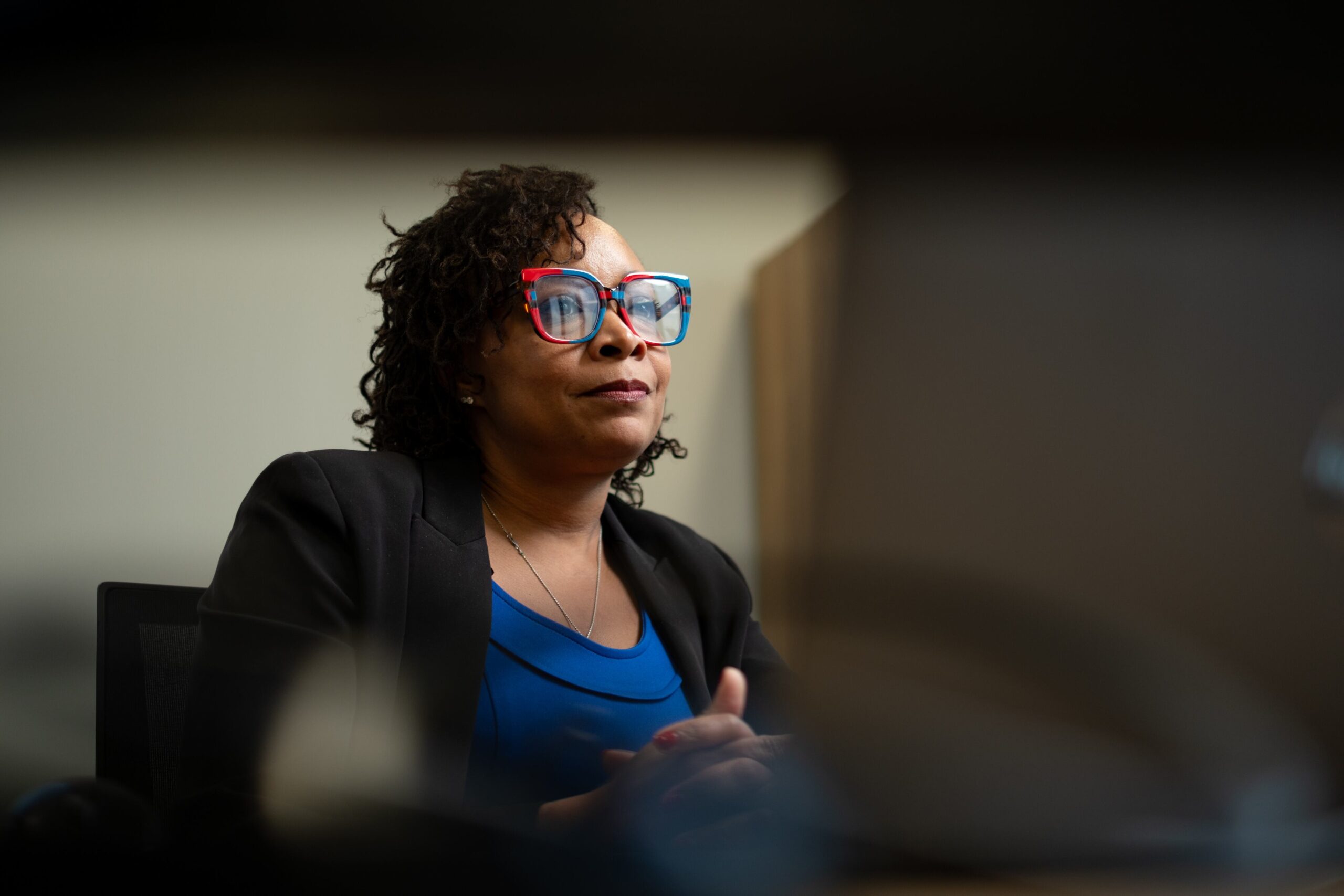According to the new code, the inspector general submits investigations to the board as part of a legislative makeover of the offices led by the Dickens administration. The board then forwards the final decision and report to the mayor, the city council, and the general public.
However, a number of board positions are still open after being severely weakened by resignations amid a sour dispute between Dickens and former Inspector General Shannon Manigault.
In the five months that have passed, only one of the board’s seven members has been filled, creating a Catch-22 situation in which inquiries into claims of wrongdoing have been completed but the findings have not been released to the public.
Some folks are worried about that lack of transparency.
The administration’s handling of the inspector general’s office has been criticized by Felicia Moore, a former City Council president who lost to Dickens in the most recent mayoral runoff election. Moore has claimed that Dickens lacked the authority to name an interim IG to look into him and other officials.
According to Moore, the first step is to have a board—a fully operational board of independent individuals who wish to get the office back on track. There has been enough time. They ought to have a quorum at the very least after five months.
The inspector general and inspector general’s office ought to have been acting quickly to appoint those boards if we truly believe in them.
During a committee hearing earlier this month, Blackett informed City Council members that approximately 60 cases are prepared for the board to formally close when it next convenes, and that her staff found no misconduct in the great majority of them.
Although we do have more than 60 cases, she stated, “I don’t want that to imply that there are 60 cases of people doing bad things within the city.”
Blackett declined to specify in an interview how many of the cases she substantiated wrongdoing. Additionally, she would not reveal the number of cases involving the mayor’s office.
At least three cases that are subject to closure at the first governing board meeting involve investigations involving the mayor or employees of the mayor’s office, according to papers that The Atlanta Journal-Constitution was able to get under the state Open Records Act.
According to records, one complaint questioned the mayor’s 2023 trip expenses to Ethiopia and if the city covered the lobbyists’ travel expenses. Until the case is closed, no more information about the complaint is available.
According to Blackett’s answer to the AJC’s request for open records, as of May 6, at least seven further incidents involving the mayor’s office were still under investigation.
Thanks to Matt Reynolds
Thanks to Matt Reynolds
According to Blackett, the investigation backlog also consists of a few claims that former inspector general’s office employees reported to federal authorities in March when they felt that new legislation had deprived the office of its authority to look into possible crimes.
The writers of the letter came under fire from city officials for openly disparaging the people they identified.
At the council committee meeting on July 16, Blackett stated that whether a case was supported or not, it was simply floating around without a conclusion. Therefore, the sooner we have a board, the better we can resolve those issues.
Opponents of Blackett’s appointment contend that the watchdog’s political independence was taken away and that the mayor lacks the power to choose the head of the body charged with investigating possible wrongdoing.
Moore said that the mayor’s appointment went against the original OIG ordinance that was enacted during her tenure when the legislative revisions were being reviewed by City Council.
In a recent interview, she stated that the mayor’s administration should not choose an interim IG. That undermines any independence, and he is not legally permitted to do so by charter or code.
According to Moore, that individual should not be closing anything, and most definitely not without a board.
Riley Bunch, [email protected], is credited.
Riley Bunch, [email protected], is credited.
Blackett disputed the accusation in a recent interview with the AJC, stating that any vendor or anyone found to be stealing from the city should be reported right away.
“If there are bad actors in the city, our goal in conducting these investigations is to stop them,” she said. We should make sure that everyone in the administration knows what they are.
However, the nomination of Blackett by the mayor and the lack of a governing board have effectively rendered the inspector general’s department a part of the executive branch, according to Jason Speights, a former assistant inspector general who resigned earlier this year.
Speights told the AJC that if you are looking into your employer and your boss has the power to terminate you to end the inquiry, that might end the probe. Alternatively, they can designate a person who will not carry out the investigation.
Speights made it clear that this is only a speculative worst-case scenario.
The mayor’s office representative forwarded inquiries to the inspector general’s office and declined to comment on the closed cases. No significant opponent has declared interest in challenging Dickens, who is running for reelection this year.
Disagreement over COVID funds case
The AJC acquired and examined one case that Blackett had administratively closed because she didn’t agree with the investigator’s conclusions.
Blackett notified mayor’s office officials in May that she had administratively closed a case into claims that United Way of Greater Atlanta misappropriated federal COVID-19 monies in 2021 while the nonprofit was in charge of the city’s housing assistance services.
In a memo received by the AJC on May 12, Blackett wrote to Chief Operating Officer LaChandra Burks, stating that the current Inspector General disagrees with the facts and conclusions of the Closing Memorandum.
Speights, the case’s investigator, discovered that the program’s cash was mostly used for administrative costs rather than resident aid, well exceeding the 10% cap stipulated in the nonprofit’s initial contract with the city.
According to the investigator’s closing memo, the U.S. Department of the Treasury had to recover approximately $9.1 million because the evidence indicated that the United Way was unable to manage the program’s volume of applicants or keep it operating within the legal and contractual budget.
In this case, the record indicates that the City was not open with the public or City Council regarding the difficulties the United Way encountered in carrying out the rental assistance programs, the memo continues. Cost overruns, even large ones, on a large-scale project are not always reason for concern.
Regarding the case, Speights chose not to comment.
The United Way of Greater Atlanta’s president and CEO, Milton Little Jr., stated that there were four award rounds and that the city permitted administrative expenses ranging from 10% to 20%.
“After we walked through the cost of running this program, they realized that it could not be done at a 10% admin fee,” Little continued, adding that any administrative spending that went beyond the 10% permitted by the U.S. Treasury was augmented by city of Atlanta dollars.
Blackett concluded the case by pointing out that the office’s charter was amended during the legislative revamp to include a two-year statute of limitations on inquiries.
The City Auditor is responsible for evaluating financial expenditures; no Atlanta resident, employee, or elected official voiced any complaints regarding this issue, and the special circumstances of the COVID-19 outbreak were not adequately taken into account, she wrote.
Blackett continued: Such reviews have never been within the OIG’s investigative purview in the absence of claims of deliberate, careless, or reckless spending.
Regarding situations that haven’t been formally concluded by a governing body, Blackett declined to comment.
Majority of board seats remain unfilled
When Manigault resigned earlier this year, the bulk of the previous members of the Inspector General’s governing board also resigned. The former OIG stated that she left because of harassment, intimidation, threats, and bullying from those who have been the focus of our investigations.
Credit: AJC/HYOSUB SHIN
Credit: AJC/HYOSUB SHIN
According to a study of legislative documents, the Atlanta City Council has only confirmed one individual for a position on the seven-member governing board: Chris Burris, a partner with the King & Spalding law firm.
Burris was unanimously confirmed by the City Council in May after being recommended by the Metro Atlanta Chamber in February.
A second candidate, Timothy R. Foster, a financial and audit expert, was proposed by the Georgia Chapter of the Association of Certified Fraud Examiners; council has not yet confirmed his nomination.
As of July 29, Radford Bunker, a senior attorney and public defender in Rome, is the only other candidate the Atlanta Bar Association has nominated for the board.
According to Chris Bruce, president of the Gate City Bar Association, the group should nominate someone by the beginning of August.
In an email statement, he stated, “We recognize that the OIG’s completed investigations cannot be formally concluded and made public until the board is in place.” This emphasizes how crucial it is to work quickly and cooperatively to finish appointments.
Bruce stated in an interview that the Gate City Bar Association has been urged to nominate a candidate by the city: “From my perspective, they want a fully functioning board,” he added.
The Atlanta Planning Advisory Board, a citizen organization made up of local leaders, expects to nominate a candidate in August, according to Sagirah Jones, its president.
Jones added, “We are being very intentional about our appointment. We are currently in the vetting stages for potential candidates to be nominees.”
She said the Atlanta Planning Advisory Board s position is that the city charter does not preclude the interim inspector general from publicly sharing results of investigations it has administratively closed, while there is no governing board in place.
This is looking at it from the lens of building public trust and transparency but not knowing what the IG s interpretation is of the legislation, Jones said.
Leona Barr-Davenport, president and CEO of the Atlanta Business League, said she does not know when the group will make its nomination.
Asked whether she thinks the OIG should be referring information about the results of its investigations to city departments before a governing board is in place, she said, I m going to trust that those results that are being shared are for the good of the city.






